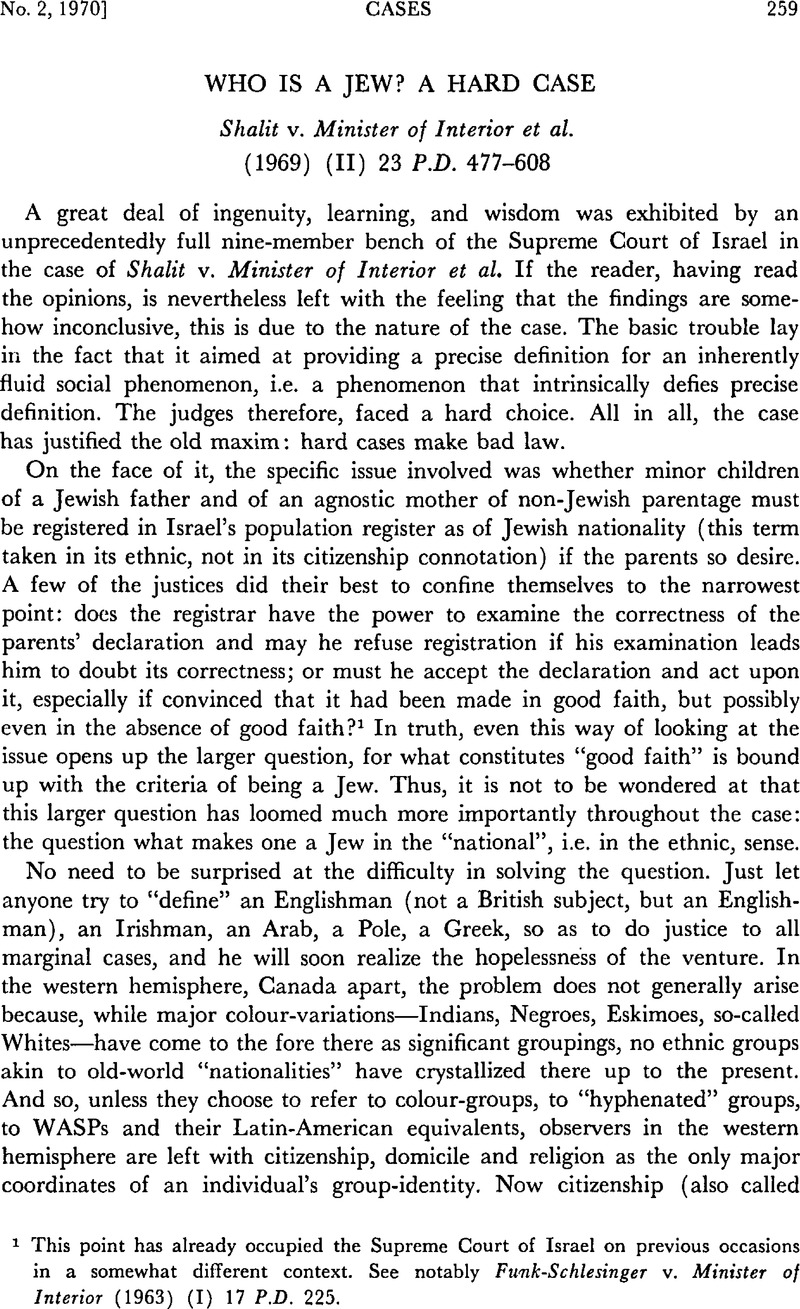Published online by Cambridge University Press: 12 February 2016

1 This point has already occupied the Supreme Court of Israel on previous occasions in a somewhat different context. See notably, Funk-Schlesinger v. Minister of Interior (1963) (I) 17Google ScholarP.D. 225.
2 “Domicile” or, the slightly different term “residence”, is, of course, a description of a person's habitual location. But both expressions are pre-eminently used in a formal sense. As for religion, the above statement refers to the validation of an individual's affiliation with an organized denomination according to criteria set by it. There is another aspect to a person's “religion”, i.e. the identification of a person with a given religion as a matter of his individual consciousness. Here, just as in regard to a person's own identification with an ethnic group, his conscience rather than any formal criterion is decisive, and it is in this sense that “a person's religion” is said to be “his own affair”.
3 Sometimes an attempt is made to regard “national” identification as being an exclusively subjective phenomenon, i.e. as depending on an individual's “national consciousness” only. This viewpoint does not stand up to scrutiny. A la rigueur, it can be maintained where nationality is to be discussed in the abstract; where it is to be the basis of some formal ruling, some more clearly ascertainable component should be added, especially since national consciousness may be both frivolously asserted or—far more frequently—completely lacking. Of the authors who are most often cited in support of the exclusively “subjective” approach, three at least were moved, if only subconsciously, by a special bias: Ernest Renan wrote at a time when French opinion was anxious to claim Alsace, whose population, though German-speaking, had pro-French feelings; Otto Bauer and Georg Jellinek were respectively an extremely assimilated and a converted Jew anxious to identify with the German nationality. Still, they conceded the importance of subjective criteria.
4 This point of view has some basis even in Jewish religious law. See Mr. Justice Silberg, in his opinion in Rufeisen v. Minister of Interior (1962) (IV) 16 P.D. 2428. That particular opinion may have somewhat overstated the case. S. Miron in (1967) HaPraklit 164 has probably stated the matter in a more balanced way, and so also has Mr. Justice Kister in the Shalit case (op. cit., at p. 549).
5 In a subsequent case, also involving a minor child, the Supreme Court has ruled that the child's nationality need not be entered in the population register against the parents' wishes. The effect of that decision, if followed, will be to make the nationality entry a voluntary rather than a compulsory one, a solution which this writer believes to be a very satisfactory one.